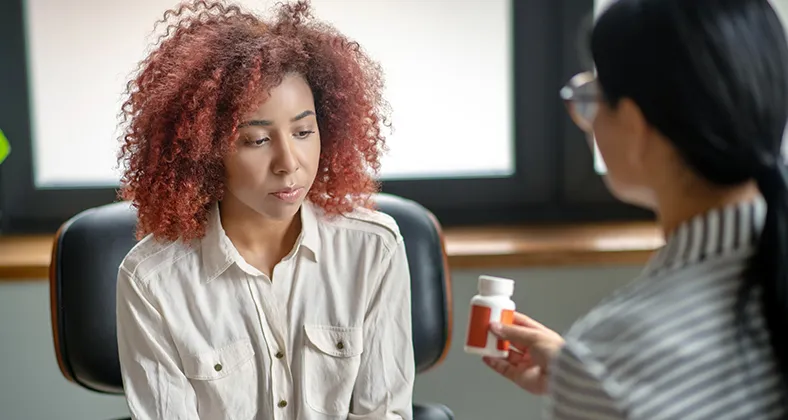Addiction is the worst habit that people develop by seeing others or maybe when they are dealing with stress, and to manage that, they start with taking drugs. Drugs are very bad, and people get addicted to them quickly. Sometimes, addiction also leads to poor health and might cause death if the toxication is so intense.
In recent times, it is usually seen that the youth are endorsing toxication so much that it is causing them to face physical and mental illness. Now, if we talk about the side effects, then the physical side effects include the craving for the drinks and also withdrawal symptoms like puking when there is excess consumption that the body can’t handle. On the other hand, if somebody has mental side effects, then this will include stress, anxiety, and depression.
This blog will discuss the consequences faced by people who drink more and the treatment available in Edmonton. So, to discover more, continue reading.
Diagnosis process of alcohol
The diagnosis of the drug requires an evaluation, and this often includes an assessment by a psychologist, a psychiatrist, or an alcohol drug counselor. The process starts by collecting urine and blood samples to assess the drug correctly. This also ensures that the diagnosing process is on time. On the other hand, for diagnosing substance use disorder, most mental health professionals use the criteria in the diagnostic.
How do we meet standards for effective treatment?
According to the study, it is mainly seen that the addiction can be controlled by prescribed medicines like pain relievers or by taking drugs such as fentanyl or heroin. These medications also help treat the addiction to nicotine and alcohol. Moreover, with the help of medicines, the intoxicated person can detoxify the harmful drugs from their body. Also, note that detoxification alone without a subsequent remedy generally leads to the resumption of drug use. Since there are currently no pharmaceuticals to help treat substance addictions such as amphetamine or cannabis addiction, behavioral treatments are the mainstay of treatment for these individuals. The Edmonton experts take each patient’s drug usage patterns and drug-related medical, mental, and social issues into account while designing their treatment plan.
What are the cures available to treat the addiction?
Here are some of the primary treatments that you can use to cure the addiction:
Treating Withdrawal:
This process is initiated when the patient stops consuming drugs. This might be a challenging task to be done for the addicted person, as this will lead to sleeplessness, anxiety, restlessness, and other mental health conditions. But with the use of this method, there are chances that these symptoms will be reduced, which will encourage the addicted person to stop taking drugs.
Preventing Relapse:
According to scientific research, the most frequent causes of relapse are contact with drugs and stress cues associated with drug use, such as people, places, objects, and moods. To assist patients in maintaining their recovery, scientists have been working on creating treatments that block these triggers.
Continuing With the Treatment:
To overcome this, it is necessary to be consistent with the treatment so that the result will be positive. Some medicines and mobile applications help the brain adapt to the absence of drugs. Although these treatments act slowly, they will prevent drug cravings and have a calming effect on the body. They can help patients focus on counseling and other psychotherapies related to their drug treatment.
Prominent therapies that work wonderfully
If you are someone who does not want to go for treatment by taking medicines, then it would be best to go for some therapies like:
Cognitive-behavioral therapy
Cognitive behavioral therapy is a type of counseling therapy that assists patients in identifying, managing, and avoiding the use of drugs. If they are drinking excessively, then there are chances that the person will automatically discover that, and they might decrease their use of it.
Motivational enhancement therapy
The person is motivated on their own after taking the therapy, and they start reducing it. Sometimes, the surroundings also make their way and support them in reducing it.
Contingency management
Positive reinforcement, such as giving out prizes or privileges for abstaining from drugs, showing up to and engaging in counseling sessions, or taking prescribed medication, is a critical component of it.
Family therapy
When their closest person or the family member they love the most tries to scold or tell them to stop, they are likely to be impacted. It is also possible that they might stop the addictive habit.
Self-help groups
Yes, you read that right. Many people are affected by counselling on their own. Self-help support groups, such as Narcotics Anonymous, help people who are addicted to drugs. The main motive of these groups is that addiction is an ongoing disorder with a danger of relapse. By doing so, they can decrease the sense of shame and isolation that can lead to reversion.
In conclusion
Friends and family of people who have an addiction may be significantly impacted. On the other hand, you can take care of yourself and support a loved one in numerous ways. We at Edmonton Counselling are aware of your family’s difficulties. For this reason, family therapy, support groups, educational programming, and other tools are provided by Edmonton counsellors to assist friends and family members in recovering from the effects of addiction. Quitting drugs is only one step in a drawn-out and intricate rehabilitation process. Addiction frequently has significant aftereffects on a person’s life at the time they enter treatment, potentially impairing their health and ability to operate in their families, communities, and places of employment.

